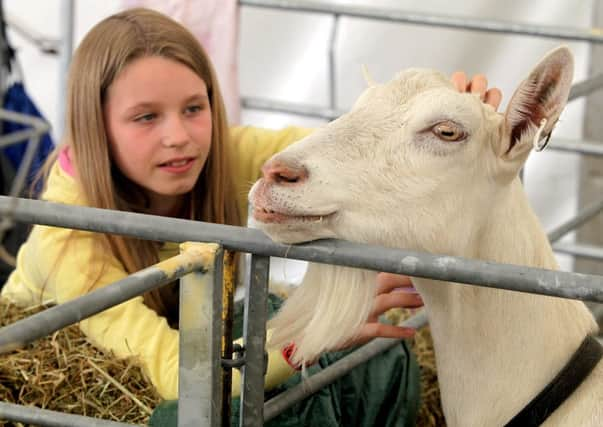Highland show: tenant farm rent rises and reform


The document, launched yesterday at the Royal Highland Show, was widely welcomed as a deep and thorough “grass roots up” investigation of many of the issues facing both tenants and landlords around the country.
Launching the report, secretary for rural affairs Richard Lochhead said the group had been set up to address the issues of Scotland’s shrinking tenant farm sector and the interim report provided a firm basis for detailed thinking to overcome the challenges of the sector.
Advertisement
Hide AdAdvertisement
Hide Ad“It is no surprise that the issues we are dealing with are complex,” he said. “For instance the right to buy, and rent review procedures have generated much interest and sensitivities.”
The report said that Scotland had one of the lowest proportions of rented land anywhere in Europe and there were concerns that shorter leases were replacing longer letting arrangements.
It said: “This lack of availability of new lets is affecting new entrants and established farmers wishing to expand, which is creating stagnation in the sector.”
Other areas of particular interest included constraints on investment caused by increasing use of short-term lets leading to potential difficulties in obtaining finance and a lack of access to direct farm payments for new entrants. Restrictions imposed by the statutory framework might be affecting landlords’ and tenants’ willingness to diversify and invest, it suggested.
Review group members commented on the size of the undertaking, with meetings in every part of the country, speaking to all parties involved in the sector.
Although the interim report raised more questions than answers, the group said this was by design as it wanted to focus on getting the answers in the second round of meetings, with the aim of producing a finalised report by December of next year.
Angus McColl of the STFA said that his organisation welcomed the report: “We’ve been encouraged by the fact that the Scottish Government seems keen to support the secure tenanted sector and sees keeping this sector alive as being in the public interest.”
However, he raised fears that, until new measures were introduced, there was a real risk that landlords’ agents could use the interim period to “make hay” with what he described as the “current unrealistic mechanism” adopted for settlement through the Land Court. “We would like to see some form of control on any rent increases between now and the introduction of new measures,” he said.
Advertisement
Hide AdAdvertisement
Hide AdMr Lochhead admitted that it could be some time before new measures were introduced but added that he was willing to listen to the views of all stakeholders on the issue.
David Johnstone, chairman of Scottish Land and Estates, said that his organisation’s views were mixed on some areas of the report, but added: “What both landlords and tenants are looking for is confidence – confidence to let and to invest.”